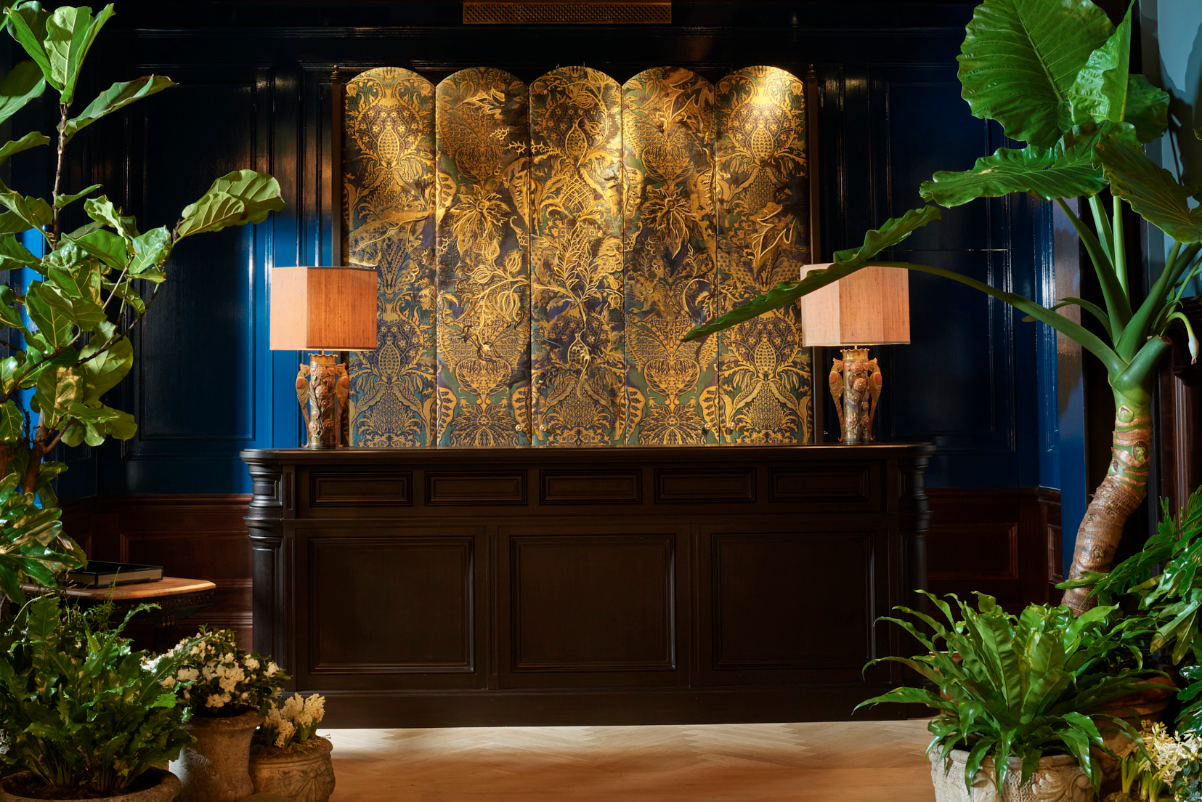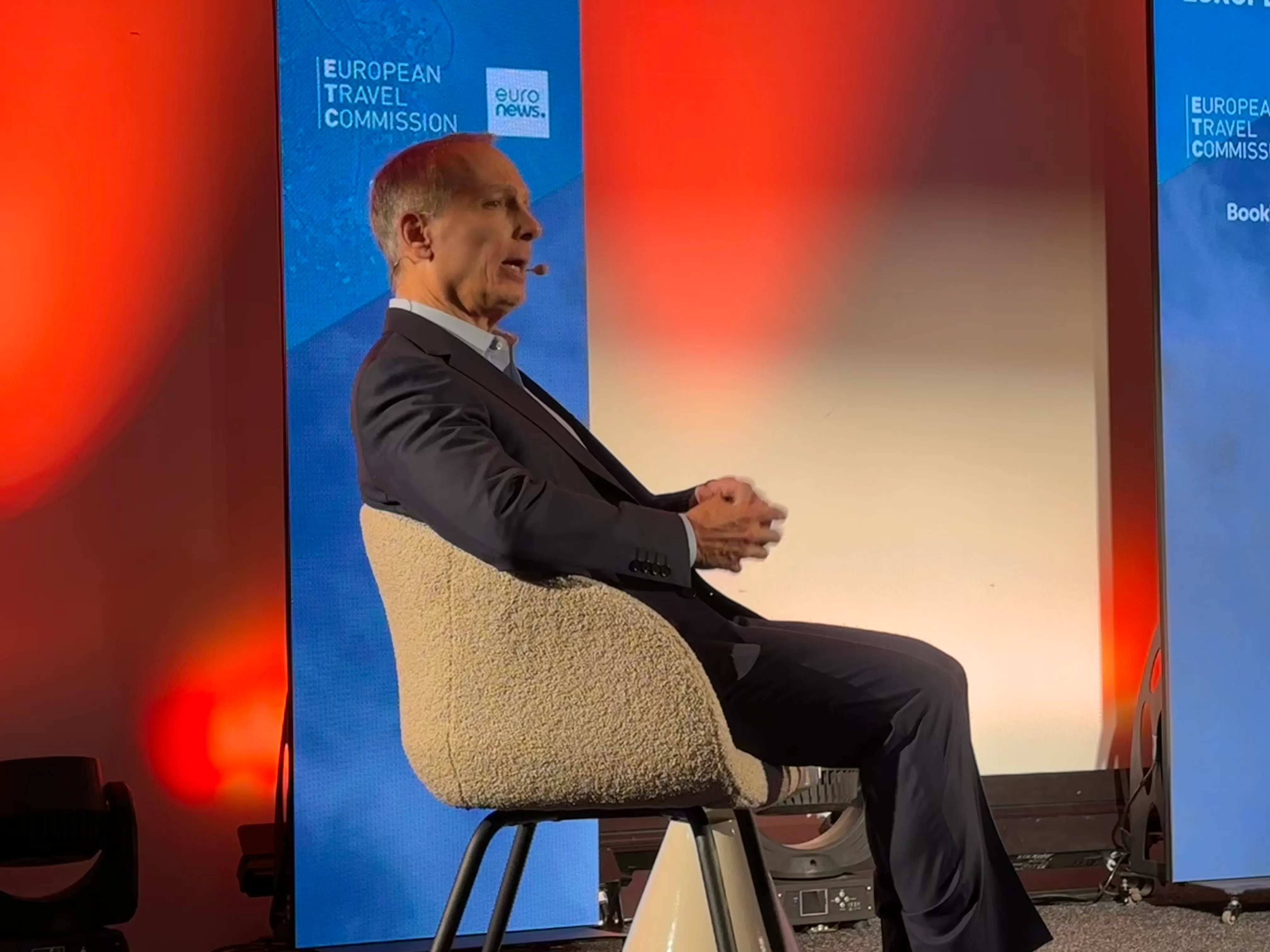Wellness Newsletter: Nike, Sweaty Betty, and Others Get Serious About Building Communities

Skift Take
For serious fashionistas, showing up to an event wearing the same outfit as someone else is almost seen as a sin. In wellness, however, this might be viewed as a step to building a strong community. Case in point: Sporting an identical pair of leggings as a fellow yogi is a good thing –– it creates a “tribe” culture, said Tamara Hill-Norton, founder of London-based athleisure brand Sweaty Betty, which is exactly what her brand has tried to foster.
Building Sweaty Betty’s community hasn’t just been about growing a digital fan base, but creating in-store opportunities, like free yoga classes and weekly guru-led wellness talks. The brand just celebrated its 20th anniversary, so you might say the plan is working out well.
Nike is also looking to strengthen its community by opening a new flagship store in New York City, where loyalists can engage with the brand by personalizing their footwear or meeting with on-staff experts to pick out their perfect pair of kicks — and of course, an athleisure ensemble to match.
Even beauty brands have tapped their communities to find out what their fans want. In the case of Korean brand Peach and Lily, loyalists are looking for clean beauty products –– and it has created a line in response.
Meanwhile, wellness conferences like the new Wellspring event (founded by the team at Wanderlust, a global yoga and wellness hub) look to establish a sense of togetherness –– and not just by having its attendees bond at the event. Many of the various panels and lectures at these events center around how to make wellness more inclusive. It’s a big goal, but at a time when wellness risks being seen as aspirational only for the well-to-do, it’s an important one.
For feedback or news tips, reach out via email at lb@skift.com or tweet me @lesliebarrie.
— Leslie Barrie, Skift Wellness Editor
 Athleisure
Athleisure
How the Founder of Sweaty Betty Created a Cult-Like Following: Attend any fitness class in New York or London, and you’ll likely spot a pair (or 10) of Sweaty Betty leggings. Founder Tamara Hill-Norton has created a strong community around the brand –– customers come for the in-store events and stay to buy the spendy elastic pants. The company just celebrated its 20th anniversary with a 4,000-person event, signaling that its tactics have clearly paid off.
Nike Opens a New Flagship Store, Proving Retail Isn’t Dead ... Yet: Impersonal, cookie-cutter retail may be languishing, but Nike is taking a chance on a connective, dynamic shopping experience that compliments today's digital era with the opening of its new New York City flagship store. The goal: Give customers an “only here” opportunity, such as the ability to scan a barcode on a mannequin and have the entire look brought straight to a customer’s dressing room. It’s a retail test, and one that Nike hopes to ace.
Mind & Body
The Good and Bad of the Wellness Gathering: After the launch of many festivals and retreats focused around the idea of well-being, it was only a matter of time before wellness conferences would come onto the scene. Enter Wellspring, a “relational platform” (wellness-speak for “conference”) targeted to influencers and “seekers,” started by Wanderlust, a 10-year-old wellness event brand. The conference may spell profits for the parent company, but at almost $1,000 a ticket, it raises questions about wellness elitism and the price of zen.
Hospitality
Wellness Hospitality Brands Try to Keep Their Calm in Big Cities: The remoteness of wellness-oriented resorts and spas like Aman and Six Senses is often what's so appealing about them. There’s no better way to find your bliss than in a hotel room where you can actually hear birds chirping or waves crashing right outside your door. But in an effort to “meet customers where they are,” wellness hospitality companies are trying their luck on big cities. They're hoping guests can tune out the car horns of the concrete jungle and still discover some tranquility.
Beauty
Peach and Lily Bets on Clean Beauty: The clean beauty movement is booming, and of course, so too is the Korean beauty industry (now worth over $13 billion). So it comes as no surprise that the K-Beauty brand Peach and Lily would create a “worry free” line, made without parabens, synthetic ingredients, and phthalates. What motivated the founder, Alicia Yoon? Crowdsourcing loyal customers who now have more concerns than ever about what’s in their products and don’t want to take the time to try and figure it out.
FOOD & DRINK
Brewers Hop on the CBD Trend: CBD oil has been infused in everything from sparkling water to soda, so it only makes sense that beer would be brought in on the game. Brewers have already been adding cannabis byproducts to their drinks, like hemp flavor in SweetWater Brewing Company’s 420 Strain G13 I.P.A –– and some have even experimented with THC. But with the surge of CBD in the wellness space, breweries see the non-intoxicating oil as a new opportunity, though federal regulations have been a challenge. The big question is, will the wellness set get on board with the new brews?
Vitamins & Supplements
LeBron James, Arnold Schwarzenegger, and Lindsey Vonn Enter the Direct-to-Consumer Supplement Game: Mix a celebrity-founded supplement company with savvy marketing and a direct-to-consumer model, and you pretty much have a slam dunk. There’s also good origin story: Back in 2014, LeBron James suffered a bout of cramps that forced him to leave Game 1 of the NBA finals early. He needed to take a supplement, but many on the market were filled with questionable ingredients, which sparked his idea for Ladder. All of the products offered are certified by the NSF international testing organization. With so many celebrity backers, our bet is that customers come flocking, making Ladder a win.
Skift Wellness Editor Leslie Barrie [lb@skift.com] curates the Skift Wellness newsletter. Skift emails the newsletter every Thursday.





